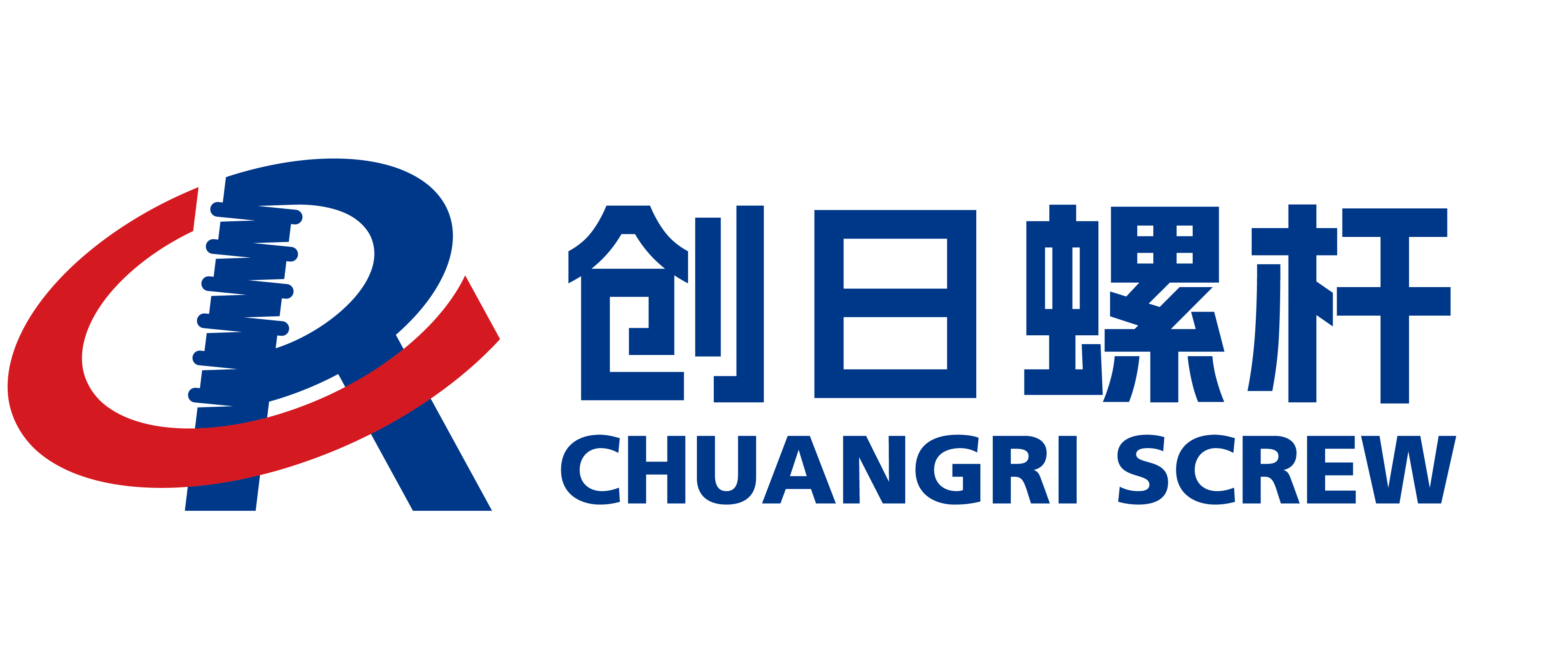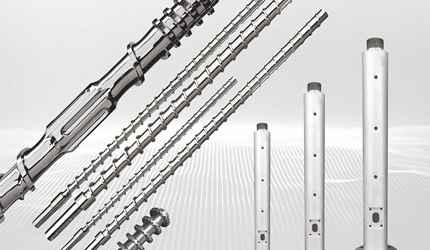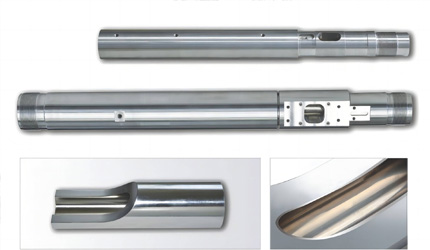Injection Molding Machine Screw Barrel: Key Maintenance Strategies
Injection Molding Machine Screw Barrel: Key Maintenance Strategies
What Are the Common Issues Faced by Injection Molding Machine Screw Barrels?
Signs of Wear and Tear in Screw Barrels
Screw barrels are the heart of injection molding machines, turning raw plastic into something useful. How well they work decides if your products turn out great or not. Over time, though, they start showing their age. You might notice the machine isn’t pumping out as much as before. Or maybe the plastic melt looks uneven like it’s not mixing right. Longer cycle times can creep in too. Check the barrel’s surface—if you spot scratches, grooves, or weird discoloration, that’s a sign the material’s wearing down.
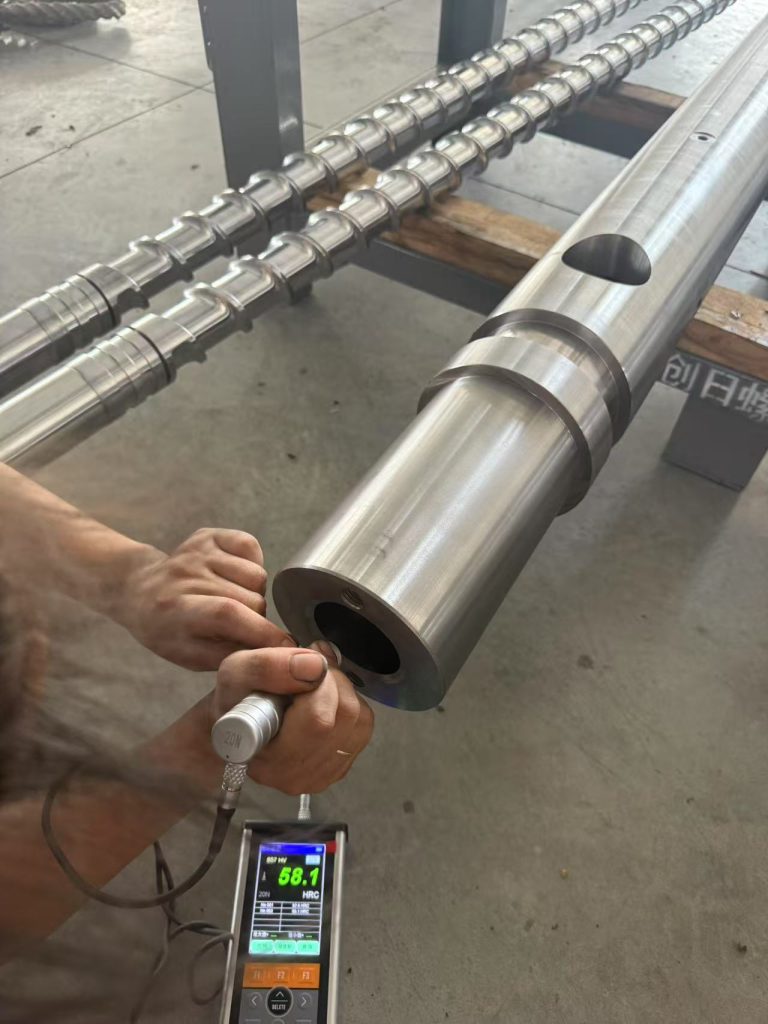
Causes of Damage in Injection Molding Machine Screw Barrels
So, what messes up screw barrels? A few things. For one, the screw and barrel are always rubbing against each other, and that grinds them down over time. Toss in abrasive or corrosive materials without the right protection, and you’re asking for trouble. Skimping on lube or forgetting to clean them out doesn’t help either—it just makes the damage pile up faster. Another big culprit? Using materials that don’t play nice with the setup. Wrong materials can set off chemical reactions that chew up the barrel’s surface, shortening its life.
How Can Regular Maintenance Enhance the Lifespan of Screw Barrels?
Importance of Cleaning and Lubrication
Want your screw barrels to last? Keep ‘em clean. Plastic gunk left inside can screw up the heating process. That leads to choppy material flow and products that don’t make the cut. Regular cleaning sweeps that junk away. Lubrication’s just as big a deal—it cuts down on friction between moving parts. Less friction means less wear, so your barrel sticks around longer.
Best Practices for Preventing Corrosion and Abrasion
To keep corrosion and wear from wrecking your screw barrels, think smart about materials and protection. Coatings like bimetallic layers or chromium plating act like a shield against harsh conditions. CHUANGRI SCREW’s bimetallic barrels, for instance, mix tungsten carbide bits into a nickel alloy base. That combo’s built to last. Another trick? Warm up your raw materials before tossing them in. It cuts down on sudden temperature jolts that can stress out the barrel.
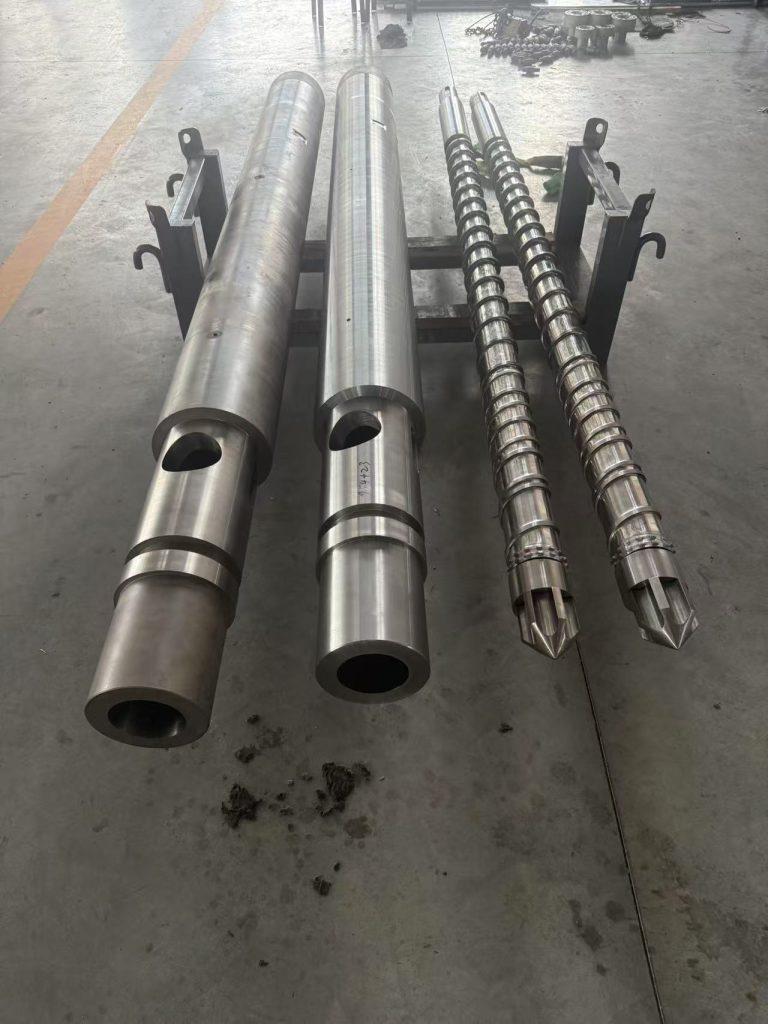
Tips for Monitoring Performance Over Time
Staying on top of how your screw barrels are doing can save you a ton of hassle. Keep an eye out for warning signs, like if the products aren’t coming out right. Hearing odd noises during runs? That’s a clue that something’s off. Tools like infrared thermography can catch hot or cold spots along the barrel. Checking things regularly lets you nip problems in the bud before they turn into costly fixes.
Why Is Material Compatibility Crucial for Screw Barrel Maintenance?
Impact of Material Properties on Screw Barrel Durability
Picking the right materials is a game-changer for screw barrel life. Say you’re dealing with resins full of abrasive fillers or high glass fiber—those need screws that can take a beating. CHUANGRI SCREW’s got screws with HVOF tungsten carbide coatings, which are awesome for handling that kind of rough stuff. Get the materials wrong, and you’re not just wearing out parts faster—you’re also churning out subpar products that could cost you big time.
Choosing the Right Materials for Optimal Performance
Getting the material right for screws and barrels sets you up for success. Stuff like 38CrMoAlA or CPM alloys is a solid pick because they’re tough and hold up against wear and rust. CHUANGRI SCREW customizes options to fit whatever you’re working with. Do everyday plastics? No problem. Dealing with tricky resins loaded with glass fiber? They’ve got you covered. The right material keeps your setup humming and slashes maintenance bills down the line.
Who Is CHUANGRI SCREW, and What Do They Offer?
Introduction to CHUANGRI SCREW’s Expertise in Injection Molding Screw Barrels
CHUANGRI SCREW’s a big name when it comes to plasticizing gear. Kicked off in 1990, this family-run outfit has become a trusted go-to around the globe. They make super-precise screws and barrels for injection molding and extrusion. With 30+ years and over 4,600 projects in the books, they know how to whip up custom solutions for all kinds of industries. Their injection molding machine screw barrels stand out for being tough, high-quality, and ready to perform.
They’ve got a 12,500㎡ shop loaded with fancy CNC machines. That means every step—threading, milling, nitriding, you name it—is done with pinpoint accuracy. CHUANGRI SCREW leans on modern tech to hit top-tier standards. Their knack for new ideas and keeping customers happy has them working with folks in over 30 countries.
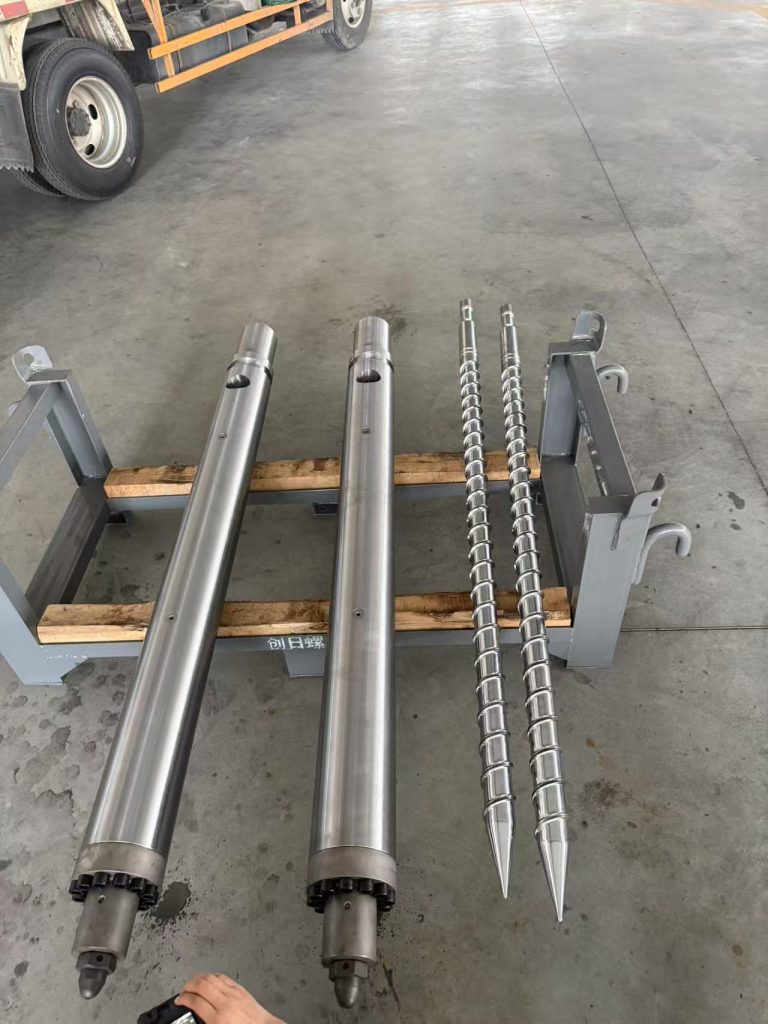
Key Features of CHUANGRI SCREW’s Injection Molding Screw Barrels
Precision Engineering and High-Quality Materials
CHUANGRI SCREW builds their screw barrels with the good stuff: 38CrMoAlA, H13 steel, CPM alloys, and Inconel. These materials laugh off wear, heat, and corrosion. They use tricks like nitriding, quenching, and bimetallic coatings to make parts even stronger. Take their nitrided screw barrels—they hit hardness levels of HV850°–1000° with a nitrided layer 0.5–0.8mm deep. That kind of care means their gear keeps running strong, no matter how tough the job.
Customization Options for Specific Requirements
Need something specific? CHUANGRI SCREW’s got options galore. Whether you’re molding basic plastics or heavy-duty resins with tons of glass fiber, they can tailor screws to fit. Their R&D crew uses tools like AutoCAD and SolidWorks to cook up designs that crank up efficiency and cut waste. You can tweak sizes (diameters from 10mm to 800mm), materials, or coatings. Their bimetallic injection molding screws, with tungsten carbide alloy coatings, boost wear resistance by over 30%. That’s a win for tackling abrasive or corrosive stuff.
Enhanced Durability and Performance Standards
Durability’s where CHUANGRI SCREW really shines. Their bimetallic barrels pack tungsten carbide particles into a nickel alloy base, making them super resistant to abrasion and corrosion. A centrifugal casting process keeps the barrel’s surface even and rock-hard. Performance-wise, these screw barrels nail tasks like moving solids, melting, metering, and pumping. Double-threaded designs can juice up output by 20%. Plus, heat treatments like quenching beef up hardness and strength, so screws can handle high-stress jobs without breaking a sweat.
FAQ
Q: What are common signs that an injection molding machine screw barrel needs replacement?
A: Look out for lower production rates or plastic melt that’s all over the place. Grooves on the barrel or longer cycle times are also signs it’s time for a swap.
Q: What maintenance practices are recommended for extending screw barrel life?
A: Clean ‘em out to ditch plastic buildup. Lube up to keep friction low. Check regularly with diagnostic tools to catch trouble early.
Q: Why is coating important for injection molding screws?
A: Coatings like chromium plating or bimetallic layers toughen screws against wear and rust. They’re a must for rough or corrosive materials.
Q: How often should injection molding machine screws be inspected?
A: Depends on how hard you’re running them, but monthly checks are a safe bet to spot wear or damage.
Q: What materials are best suited for durable screw barrels?
A: 38CrMoAlA steel or CPM alloys are great for their toughness and heat resistance. Add coatings like tungsten carbide or chromium plating for extra staying power.
